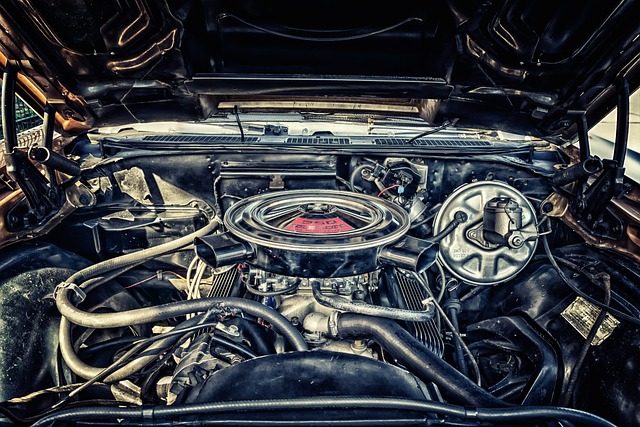Does Running an Engine at Sustained High Speeds Loosen Sludge
Many drivers have long held the view that sludge accumulation can be removed and cleared by running an engine at high speeds. Myths and Facts about does run an engine at sustained high speeds to loosen sludge, very often you will read about these in-car communities and forums being preached by guys. Who drive their cars a lot on the highway or do frequent high-speed runs as “engine cleaning methods”. Now, does it have any truth to it?
In truth, engine sludge is a multidimensional problem that results from components of oil breaking down over time and high levels of contaminants circulating through engines due to lack of maintenance. But is stringent exercise at high speed enough to clean out the dreaded coke, or just an urban myth that might do more harm than good? In this text, we will explain how sludge is created in the car, investigate whether high-speed driving helps, and bring expert opinions as well as experiences of drivers who passed through his/her first blockage.
What is Engine Sludge and How Bad Is It?
Engine sludge is a thick, tar-like substance that develops when motor oil breaks down from heat and contaminants after being in the engine for an extended period. It remains on parts of the engine, such as the oil pan, valve covers, and crankcase that it will restrict hurriedly lubrication to moving internal gears which leads to major damages in finalizing unit elements. This can cause a buildup of carbon in the engine that keeps it from receiving enough lubrication, forcing more friction to wear on components and potentially overheat or at worst case seize up entire parts of an engine.
Engines that don’t have the oil changed regularly can build up sludge, or engines with long idling periods and short trips keep the engine from coming to full temp. If not addressed, this can lead to clogging of oil passages and compromise vital parts like the oil pump which could fail catastrophically.

The Myth: Does Running an Engine at Sustained High Speeds Loosen Sludge?
The majority of drivers believe that continuous high-speed driving makes the engine hotter, which softens and dislodges sludge deposits. According to the idea, a cleaner engine can be achieved by flushing away sludge deposits with faster oil circulation under high pressure. But is this simply wishful thinking, or does it work?
Fact-Check: Can High-Speed Drive Actually Clear Engine Sludge?
1. High-Speed Driving Doesn’t Dissolve Hardened Sludge
Prolonged high-speed driving increases engine temperatures and maintains oil circulation, but it is too little to break down solidified sludge or simply dirt. Sludge adheres like tar and needs industrial-grade chemical detergents to strip it away. From John Thompson, a 20+ year automotive technician: “Once sludge forms, it doesn’t just wash away after you drive on the highway. You do require a flushing agent or professional cleaning department to get rid of it.
2. Risk of Loose Sludge Blocking Oil Passages
High rpm running can displace small, lazy sludge particles and slide them to what should be the oil strainer or engine oil pump. This would starve important parts of the engine for oil and cause catastrophic mechanical issues.
Vermont mechanic Sarah Michaels remembers a customer who brought in the car after an extended road trip, saying they had hoped it would clean out the sludge. “They had to install a new pump after chunks of dirt clogged the oil filter and harmed their car engine, Man that hurt them”.
3. High-Speed Driving as Prevention, Not Cure
High-speed driving will not only eliminate current sludge but also prevent the build-up of that grumpy gunk. Extended highway drives keep the engine at operating temperature, allowing water and fuel byproducts to vaporize before they mix with the oil in smudginess. According to mechanic and car enthusiast, James Collins: “If you are giving your car a good run on the motorway every so often then that minimizes the chance of sludge building up in the first place. However, that is not a magic bullet for engines already suffering cake town.
Proper Ways to Deal with Engine Sludge
If your engine already suffers from sludge, you won’t clean it up by driving like a wannabe NASCAR driver. Here’s what the experts at Kelley Blue Book and Auto Trader advise when it comes to maintenance:

1. Use Engine Flush Products
The best way to break down and wash away the sludge is through engine flush treatments. They usually have powerful detergents that can dissolve sludge and then are designed to just drain out with the oil during an oil change. For best performance, experts suggest pouring the flush product about 200-300 miles earlier than your next oil change.
2. Switch to High-Quality Synthetic Oil
Synthetic oils are more heat breakdown resistant and also are less prone to sludge formation. Replacing your old oil with a true synthetic after running a flush product can also deter the return of sludge. Follow the oil type and change intervals indicated in your car owner’s manual.
3. Maintain Regular Oil Change Intervals
Simply changing your oil at the appropriate intervals is the greatest approach to prevent sludge. The dirtier your oil gets; the more sludge will build up due to engine chemicals. The oil in your car should be changed every 5,000 to 7,500 miles (ca. 12,070 km), depending on the kind.
4. Monitor the PCV System
A malfunctioning Positive Crankcase Ventilation (PCV) system might increase the danger of new black gunk by trapping gases in addition to pollutants inside the engine and resulting in a buildup of sludge. Checking and changing the PCV valve regularly is minutiae but plays an important part in sludge defense.
The Role of Driving Habits in Engine Maintenance
Driving at high speed does not clean sludge Another myth, and it may lead to further damage.
- Avoid Extended Idling: Excessive idling can contribute to oil breakdown.
- Less Frequent, Longer Trips: If you only take short trips in your car and don’t drive it very often, moisture and fuel residue can form sludge aimed at the engine.
- Drive Regularly: When a car goes unused for extended periods, it can create sludge in the engine as oil stagnates and breaks down.
Personal Stories: Real-Life Experiences with Sludge
Chris J., an Ohio truck owner, commented: “I thought those long trips on the highway would get everything so hot that it would burn out all of that gunk inside them. I had an oil pressure warning light after one of those trips, and the mechanic identified sludge blocking the pickup tube for the engine oil. It was a costly mistake.”
Sustainable driver Rachel M. offers a different perspective, advising preventive care that saved her engine: “I began using synthetic-blend oil and flush treatments after my first sludge scare. I now drive my car on the freeway and in cities after this, it has no issue”.
Expert Advice: What Mechanics Recommend
Proper maintenance is the best way to avoid experiencing sludge, a warning mechanics everywhere agree on. “If your engine has sludge already, get it professionally flushed and switch to synthetic oil,” says expert mechanic Tony Williams. Your best defense is a proactive approach, so don’t rely on misinformation.
Conclusion: The Truth Does running an engine at sustained high speeds loosen sludge Myths and Facts
Does running an engine at sustained high speeds loosen sludge or simply does sludge get released when an engine is driven at high speeds for a long duration of time? No, is the conclusion. Driving at high speeds keeps the engine healthy and keeps sludge from forming, but it won’t get rid of deposits that are already there. In actuality, depending too much on forceful driving to remove sludge may backfire and result in loose sludge clogging important parts.
Frequent oil changes, high-quality oil, routine maintenance, and the occasional application of engine flush treatments are the best ways to manage sludge. To keep your engine operating properly, concentrate on preventive maintenance rather than chasing myths. Keep in mind that the best defense against expensive repairs and failures is always a well-maintained engine.
Frequently Asked Questions (FAQs)
1. Does highway driving help remove engine sludges?
Highway driving does not remove sludges or anything but helps prevent the formation of oil-eating deposits by helping them flow quickly.
2. Can sludge clog the engine’s oil filter?
Naturally, sludge can clog oil filters and engine pathways, which could limit or stop the vital energy flowing through your engine.
3. What is the best method for removing engine sludges?
The most secure method of dissolving and removing sludges is using engine flush products before an oil change.
4. Is it better to use synthetic oil to prevent sludge?
Correct synthetic oil has better breakdown resistance compared to conventional conjugation lessening the chances of sludge buildup.
